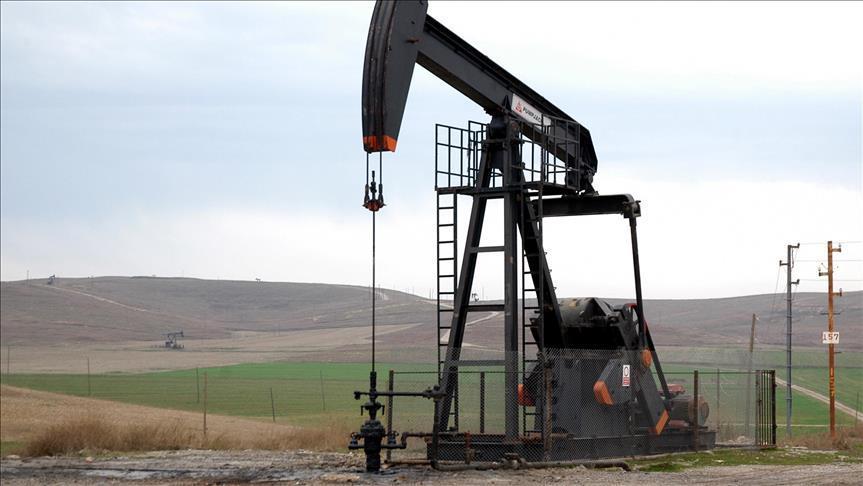Live Makkah
Live Madinah
Urdu Font Download
Latest News:
Padubidri: Fishing boat capsizes; all 7 fishermen on board rescued Alleged atrocity on lawyer: Punjalakatte SI suspended Moral policing at jewellery shop: 4 arrested Bajrang Dal activists try to assault youth, girlfriend in Mangaluru SC to hear Bilkis Bano’s plea against release of 11 convicts on 13 Dec Nusrat Noor: First Muslim Woman to Top Jharkhand Public Service Commission
Latest News:
Padubidri: Fishing boat capsizes; all 7 fishermen on board rescued Alleged atrocity on lawyer: Punjalakatte SI suspended Moral policing at jewellery shop: 4 arrested Bajrang Dal activists try to assault youth, girlfriend in Mangaluru SC to hear Bilkis Bano’s plea against release of 11 convicts on 13 Dec Nusrat Noor: First Muslim Woman to Top Jharkhand Public Service Commission
US sanctions on Iran to take full effect in November

NEW YORK, 09 May 2018 [Fik/News Sources]: After U.S. President Donald Trump's announcement of the U.S.' withdrawal from the historic Iran nuclear deal on Tuesday, U.S. economic sanctions on Iran will take full effect in November, hindering the country's ability to export oil.
"The decision that the President signed today puts sanctions back in place that existed at the time of the deal," National Security Advisor John Bolton said Tuesday after Trump's announcement.
"Now, what that means is that within the zone of economics covered by the sanctions, no new contracts are permitted," he added.
Iran signed the nuclear deal, also known as the Joint Comprehensive Plan of Action (JCPOA), in July 2015 with P5+1 countries -- the U.S., the U.K., France, China, Russia plus Germany, and including the European Union (EU).
Since then, Iran has enjoyed higher foreign investment into its domestic economy, freedom in the dollar-dominated international financial transactions, increasing oil production and rising oil exports.
All that is now in jeopardy as the U.S. Treasury Department has given 90-day and 180-day periods for such activities to wind down before previous U.S. sanctions on Iran fully take effect.
Basically, the U.S. sanctions on Iran will come in two waves, according to a statement by the U.S. Treasury on Tuesday.
After the first period that ends on Aug. 6, the U.S. will put sanctions on the Iranian government to purchase or acquire U.S. dollars.
This first wave will also include sanctions on Iran’s trade in gold and precious metals, both in direct or indirect sales, and in the supply or transfer of aluminum, steel and coal.
Sanctions will also be placed on "significant transactions related to the purchase or sale of Iranian rials," in addition to sanctions on Iran’s automotive sector.
The second period of sanctions will take effect from Nov. 4, after which Iran’s port operators, shipping and shipbuilding sectors will be limited.
The National Iranian Oil Company (NIOC) will also see sanctions along with petroleum-related transactions that include the purchase of petroleum, petroleum products, and petrochemical products from Iran.
Along with the impact on Iran's energy sector, sanctions will also affect transactions between foreign financial institutions and the Central Bank of Iran.
"In addition, effective Nov. 5, 2018, the U.S. government will revoke the authorization for U.S.-owned or -controlled foreign entities to wind down certain activities with the Government of Iran," the Treasury statement said.
- Boeing, Airbus licenses revoked
The U.S. Treasury Secretary Steven Mnuchin announced Tuesday after Trump's statement that airplane manufacturing giants Boeing and Airbus' licenses to sell commercial planes to Iran will be revoked.
That means billions of dollars of sale agreements of those countries with Iran are in jeopardy.
The U.S.-based Boeing had a $16.6 billion deal for 80 planes with Iran Air, in addition to $3 billion for 30 jets with Iran Aseman. The Netherlands-based Airbus has a $19 billion sales agreement with Iran Air for 100 planes.
Iran's oil exports in jeopardy
Since sanctions were lifted at the beginning of 2016 with the implementation of the JCPOA, Iran has enjoyed a rapid increase in oil exports and also has been trying to revive its energy sector.
The country has become OPEC's third largest producer with 3.8 million barrels per day (bpd) of crude production, according to OPEC's Monthly Oil Market Report.
This level is an increase from 2.9 million bpd in January 2016 when sanctions were just lifted.
Currently, Iran exports a little more than 2 million bpd of crude -- half of which is destined for China and India, while 25 percent goes to European countries.
Iran's crude oil exports are expected to decrease to 500,000 bpd initially when U.S. sanctions are implemented, experts concur.
This could disrupt the global oil supply, and push oil prices higher since oil demand is already on the rise.
Thomas Pugh, a commodities economist at London-based Capital Economics, said in a note Tuesday that the oil market has already priced in sanctions snapping back on Iran, and pointed to Saudi spare capacity.
"Oil prices spiked by about $20 per barrel in the first few weeks after sanctions were imposed in 2012, although they quickly fell back. However, the effect may not be so dramatic this time around for three key reasons," he said.
"First, the oil market has already, at least partly, priced in the risk of sanctions being re-imposed. Second, Saudi Arabia has plenty of spare capacity that it can use to offset any reduction in supply from Iran ...Third, the higher oil prices go, and the longer they stay there, the more non-OPEC production, especially from the U.S., will grow," he explained.
Meanwhile, Total and China National Petroleum Corporation have a joint $5 billion agreement to develop the South Pars offshore gas field in Iran for 20 years, the fate of which now remains uncertain.
Iran's options
Pugh said Iran has two options while facing Trump's decision to withdraw from the nuclear deal.
Firstly, Tehran could stay in the deal and refrain from ramping up its nuclear program.
"In this case, the EU may not deem it necessary to re-impose its sanctions on shipping insurance, which were crucial in disrupting Iran’s oil exports last time. The impact on oil supply could be relatively small as Iran would still be able to export oil to countries less concerned about U.S. sanctions, especially in Asia," he said.
Secondly, Tehran could withdraw from the deal and restart its uranium enrichment program.
"This would probably prompt the EU to re-impose its shipping sanctions. In this scenario, we would expect Iran’s oil exports to fall by a similar amount to the 1 million bpd reduction that occurred last time, although the U.S. may have a harder time getting China to reduce its imports given Trump’s tense relationship with Beijing," Pugh said.
Three actions that Iran could take
Columbia University Center on Global Energy Policy Senior Research Scholar Richard Nephew said in a note on Tuesday that Iran has three choices. Nephew was a former principal deputy coordinator for sanctions policy at the department of state.
He said Tehran could retaliate immediately by restarting all restricted nuclear activities and terminating their JCPOA-mandated monitoring commitments.
The second choice would be for Tehran to accept the U.S. decision without any response.
And the third option would be for Tehran to use this opportunity to split the U.S.-led coalition by playing "the victim."
In addition, Trump's decision to withdraw from the nuclear deal could see some retaliation from Europe as well.
"There are existing authorities for European Union member states to use in retaliating against U.S. economic interests in Europe," wrote Nephew.
"Set in the context of a souring political relationship (including with tariff threats crossing the Atlantic on a frequent basis), it is possible – if not yet likely – that the European governments most affected by a decision to restart sanctions against Iran will respond using these authorities," he said.
Prayer Timings
| Fajr | فجر | |
| Dhuhr | الظهر | |
| Asr | أسر | |
| Maghrib | مغرب | |
| Isha | عشا |







